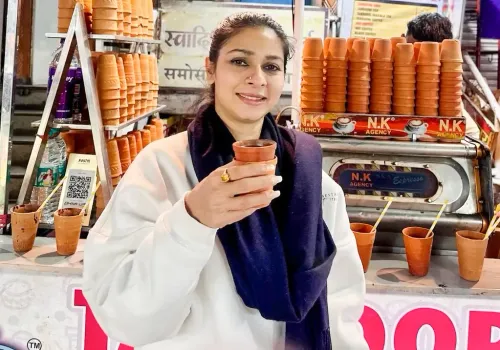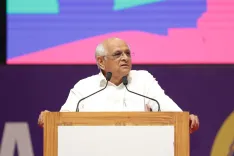Renowned Actor Biswajit Chatterjee Pays Tribute to His Late Friend Manoj Kumar

Synopsis
Key Takeaways
- Biswajit Chatterjee honors Manoj Kumar's contributions to Indian cinema.
- Their friendship blossomed during the early days of their Bollywood careers.
- Kumar's films are deeply rooted in themes of patriotism.
- Biswajit was unaware of Kumar's health issues until recently.
- They shared many fond memories, including discussions about their songs.
Mumbai, April 4 (NationPress) Renowned actor Biswajit Chatterjee paid tribute to his late friend, Manoj Kumar, who passed away on Friday at the age of 87.
Reflecting on the legacy of the iconic actor and director, Biswajit expressed, "The contributions he made in cinema are unparalleled in our country. Attempting to replicate his achievements is a monumental task."
The 'Night in London' star continued, "All of Manoj Kumar's films are steeped in themes of patriotism. The first film I saw him in was 'Shaheed', where he portrayed Bhagat Singh. His work was a source of motivation for us. I entered Bollywood concurrently with Manoj Kumar and Dharmendra, which forged a lasting friendship between us."
He shared his surprise at learning about Manoj Kumar's health struggles. "Shashi Bhabhi (Manoj Kumar's wife) informed me he had been hospitalized for an extended period, which shocked me since we had been communicating via WhatsApp—sharing images, songs, and poetry. He would often text me, 'How are you Bishu?'—leading me to believe he was doing well. I only recently discovered he had been suffering for quite some time," Biswajit recounted.
Biswajit also reminisced about their friendship, recounting a memorable moment: "There was a time I visited him, and he asked Kunal (Manoj Kumar's son) to bring me upstairs. We shared a heartfelt conversation while watching television in his bedroom. He would compliment me, saying, 'Your song 'Kahin Deep Jale Kahin Dil' is the best.' I would respond, insisting that his song, 'Naina Barse', was superior—this was the essence of our dialogues."










